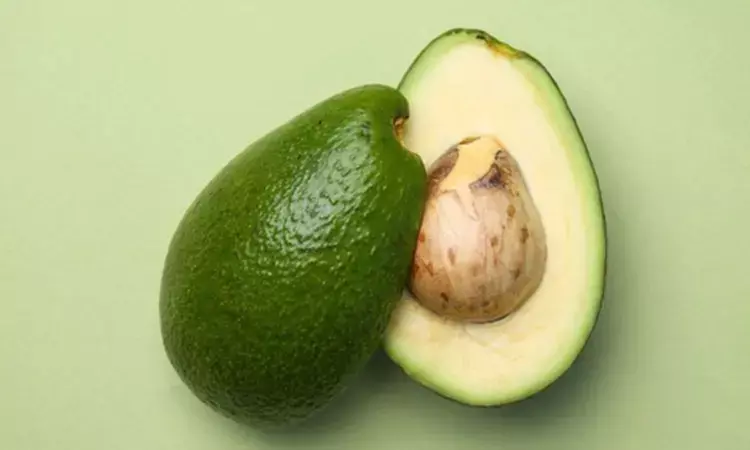- Home
- Medical news & Guidelines
- Anesthesiology
- Cardiology and CTVS
- Critical Care
- Dentistry
- Dermatology
- Diabetes and Endocrinology
- ENT
- Gastroenterology
- Medicine
- Nephrology
- Neurology
- Obstretics-Gynaecology
- Oncology
- Ophthalmology
- Orthopaedics
- Pediatrics-Neonatology
- Psychiatry
- Pulmonology
- Radiology
- Surgery
- Urology
- Laboratory Medicine
- Diet
- Nursing
- Paramedical
- Physiotherapy
- Health news
- Fact Check
- Bone Health Fact Check
- Brain Health Fact Check
- Cancer Related Fact Check
- Child Care Fact Check
- Dental and oral health fact check
- Diabetes and metabolic health fact check
- Diet and Nutrition Fact Check
- Eye and ENT Care Fact Check
- Fitness fact check
- Gut health fact check
- Heart health fact check
- Kidney health fact check
- Medical education fact check
- Men's health fact check
- Respiratory fact check
- Skin and hair care fact check
- Vaccine and Immunization fact check
- Women's health fact check
- AYUSH
- State News
- Andaman and Nicobar Islands
- Andhra Pradesh
- Arunachal Pradesh
- Assam
- Bihar
- Chandigarh
- Chattisgarh
- Dadra and Nagar Haveli
- Daman and Diu
- Delhi
- Goa
- Gujarat
- Haryana
- Himachal Pradesh
- Jammu & Kashmir
- Jharkhand
- Karnataka
- Kerala
- Ladakh
- Lakshadweep
- Madhya Pradesh
- Maharashtra
- Manipur
- Meghalaya
- Mizoram
- Nagaland
- Odisha
- Puducherry
- Punjab
- Rajasthan
- Sikkim
- Tamil Nadu
- Telangana
- Tripura
- Uttar Pradesh
- Uttrakhand
- West Bengal
- Medical Education
- Industry
Avocado consumption reduces total cholesterol and LDL-C without impacting body weight: Study

Australia: The consumption of avocado may reduce total cholesterol (TC) and low-density lipoprotein-cholesterol (LDL-C) in patients with hypercholesterolemia, a recent study featured in the Journal of the Academy of Nutrition and Dietetics has found. The researchers did not find any negative impact of avocado consumption on body weight.
Avocados are a rich source of unsaturated fats, and their consumption may impact the modifiable dietary risk factors for CVD (cardiovascular disease). The people who consume avocados are reported to have healthier diets partly due to the avocado's contribution to nutrient intake by replacing less healthy foods. The replacement of saturated fatty acids (SFA) with polyunsaturated fatty acids (PUFA) and monounsaturated fatty acids (MUFA) is recommended for primary and secondary CVD prevention due to their positive impacts on lipid profiles.
To clarify their role in altering cardiometabolic risk factors, Genevieve James-Martin and colleagues reviewed the effects of diets consumption comprising avocado than control diets having no or low amounts of avocado on cardiometabolic risk factors in healthy adults who had clinical CVD or were at increased CVD risk.
For this purpose, the researchers searched the five electronic databases along with Google Scholar to identify studies published between 1990 to 2021. It included prospective cohort studies and randomised controlled trials (RCT) ≥ 3 weeks. The inclusion criteria were satisfied by Ten studies, nine of which were RCTs (consisting of 503 participants), and one was a prospective observational study (comprising 55,407 participants). Outcomes evaluated by the narrative review included: non-HDL-C, TC to HDL-C ratio, body weight, blood pressure, apolipoprotein B, waist-to-hip ratio, waist circumference, insulin concentrations, blood glucose, and body composition.
The study revealed the following findings:
- There was a slight, significant reduction in TC (-5.08 mg/dL) in avocado vs. control groups and no notable difference in HDL-C, LDL-C, or triglycerides.
- Subgroup analysis showed significant reductions in LDL-C (-9.4 mg/dl) and TC (-7.54 mg/dL) in avocado vs. control groups in people with hypercholesterolaemia. At the same time, no differences were seen in normocholesterolaemic people.
- The certainty in the findings was classified as low to very low.
- Body composition and weight were not negatively affected by avocado consumption.
"Results from our meta-analysis indicate that intake of avocado may reduce LDL-C and TC in people with increased baseline LDL-C without negatively impacting body weight; however, there is a low certainty in these findings," the researchers wrote. "More well-designed studies are needed for a better understanding of effects of avocados on cardiometabolic health."
"Following more research to understand the potential benefits of avocado, considering these findings in the context of current eating habits may be warranted," they concluded. "Currently a large gap between population dietary intakes and amounts which may bring about measurable health effects."
Reference:
James-Martin G, Brooker PG, Hendrie GA, Stonehouse W, Avocado consumption and cardiometabolic disease risk factors: a systematic review and meta-analysis, Journal of the Academy of Nutrition and Dietetics (2023), doi: https://doi.org/10.1016/j.jand.2022.12.008.
Dr Kamal Kant Kohli-MBBS, DTCD- a chest specialist with more than 30 years of practice and a flair for writing clinical articles, Dr Kamal Kant Kohli joined Medical Dialogues as a Chief Editor of Medical News. Besides writing articles, as an editor, he proofreads and verifies all the medical content published on Medical Dialogues including those coming from journals, studies,medical conferences,guidelines etc. Email: drkohli@medicaldialogues.in. Contact no. 011-43720751


